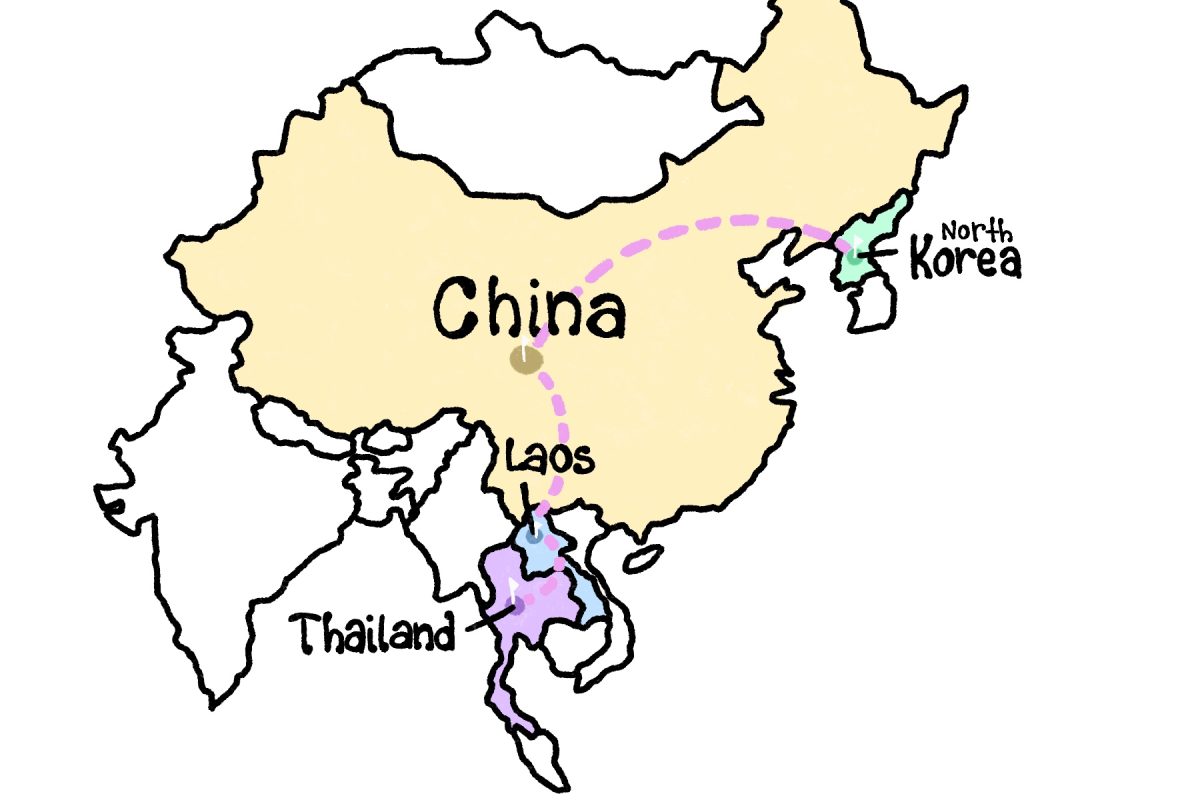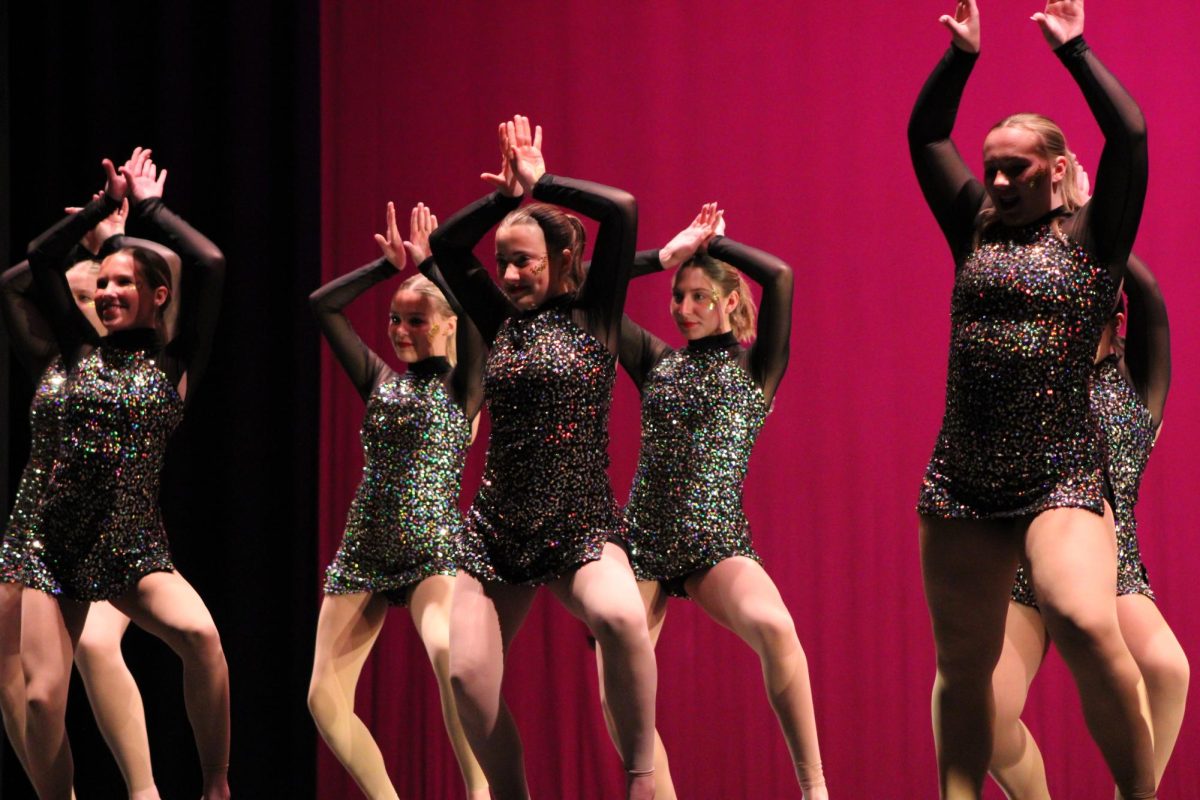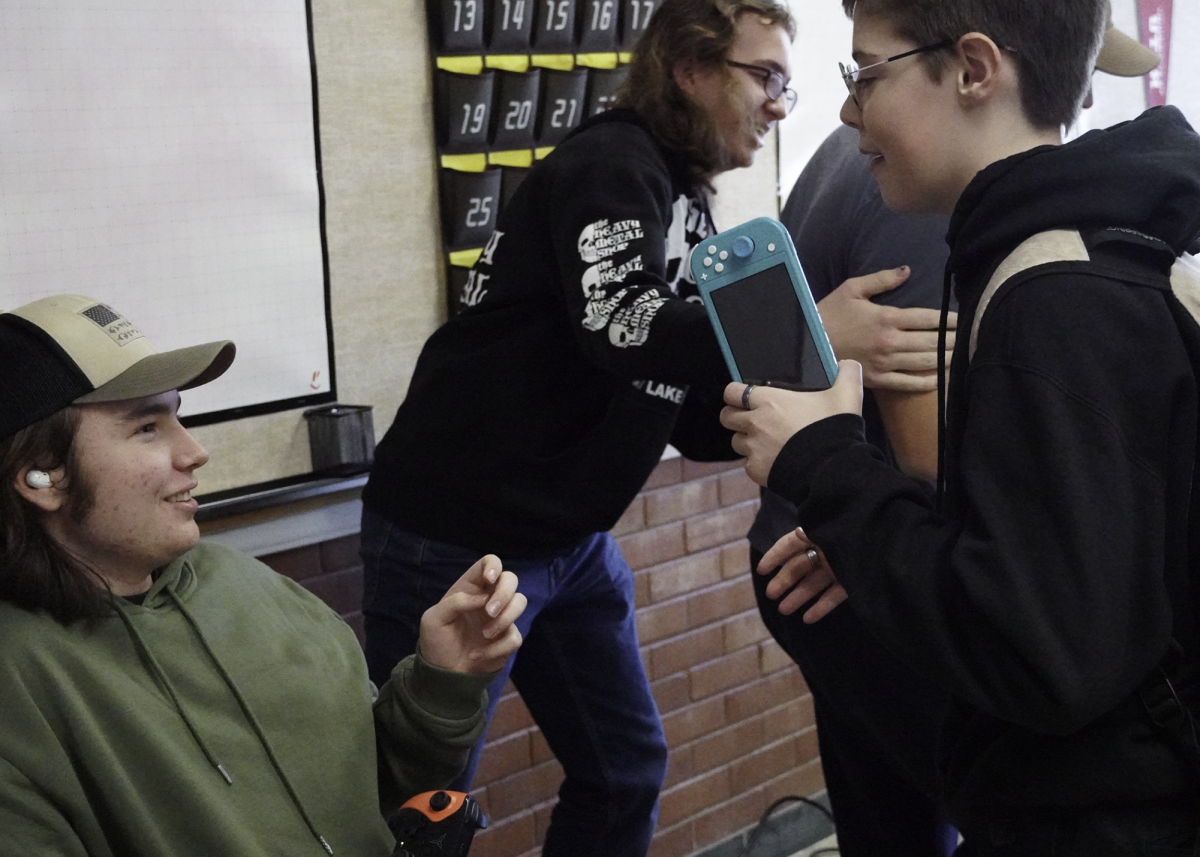Highland Theatre’s Antigone Connects the Past to the Present
April 20, 2023
The world today is a troubling place. Many people don’t see hope in a society where calamity and strife are at every turn.
Today’s world is much like Sophocles’s world was in 420 BCE. Chaos triumphed order, and all it took for society to be flipped upside down was the flick of a knife.
Yet even in troubling times, humanity still goes on. Ideas spread, from one human to the next, and eventually freedom overthrows repression.
And nowhere is better to spread ideas than the theater. The theater has always been a place where ideas were spread to the masses. In times of trouble and woe, they told everyday citizens about the fragility of power and why their rulers were crumbling under their own paranoia. On the eve of the Peloponnesian War, the bloodiest war Greece ever had faced, Sophocles first staged Antigone. This was a story of power, paranoia, the divine law of the gods and following one’s heart, even to the bitter end. It told the masses why their world was falling apart from the top down.
The wonderful thing about theatre is that its messages can reverberate throughout the halls of history. Even today, Antigone’s themes are present in modern society. Gender roles are being challenged, autocrats and democratically elected heads of state alike are having their power questioned. Corruption is rampant in every aspect of society, and it seems like the world is on the brink of total collapse.
The Greeks of Sophocles’s time were silenced just as humans across the world are now. According to Freedom House, freedom of speech is restricted in 67 countries. It’s been almost 2,500 years and the people in charge are still infringing on the freedom of expression of their subjects.
In Antigone, the King of Thebes is only king because he is a victorious military commander. Today, militaries throughout the world regularly overthrow their government. From the period of 2000 to 2021, there have been roughly 15 different military coups. Power in a military government is based on respect. The commanders must maintain their power no matter what, much like Creon, the Theban King, must do in Antigone.
The continued presence of such themes and struggles throughout history are the reason why, 2,500 years after his death, Sophocles’s work remains present on the stage. Audiences today are bound to those who came thousands of years before them through shared struggles and experiences, though faced in vastly different environments.
Time may distance the world today from that of the Ancient Greeks, but universal struggles serve as a reminder that Time cannot erase the everyday woes of humanity and that the present might not be so different from that of the past. The battles humanity must face every day as part of a society have not changed. These struggles are not novel things, nor will they disappear with future generations.
And in Highland Theatre’s production of Antigone, these hardships will tie the past to the present through the hard work and talent of the actors. Antigone runs the 20th of April at 7pm, the 21st at 7pm, the 22nd at 1pm, and the 24th at 7pm. If Antigone is anything like the productions earlier this year, you won’t be disappointed.



























